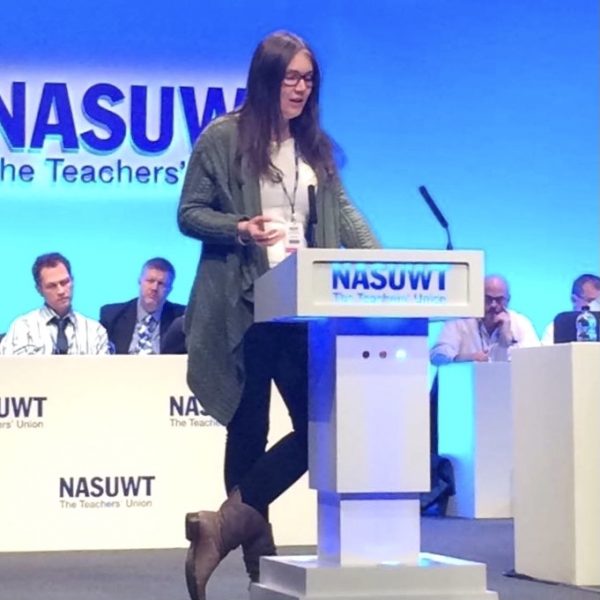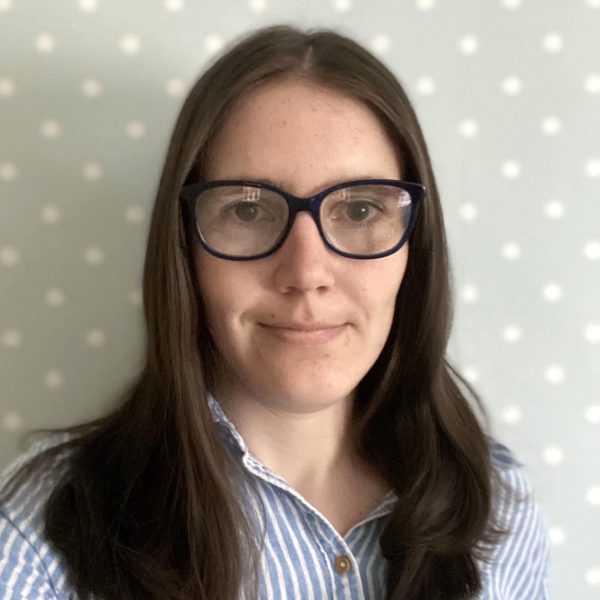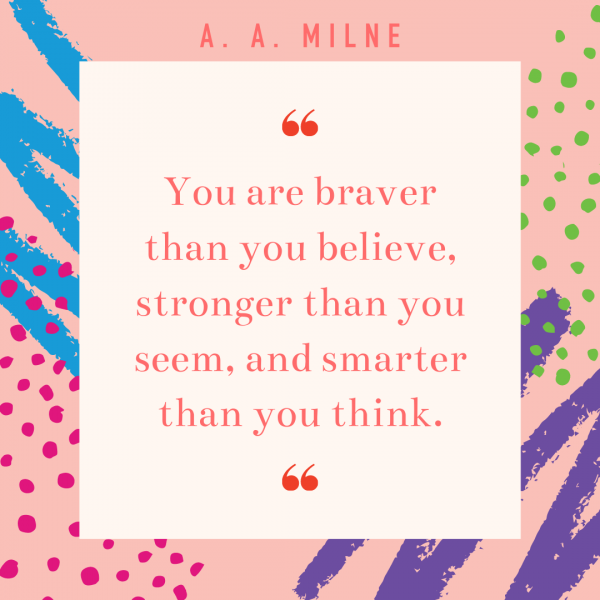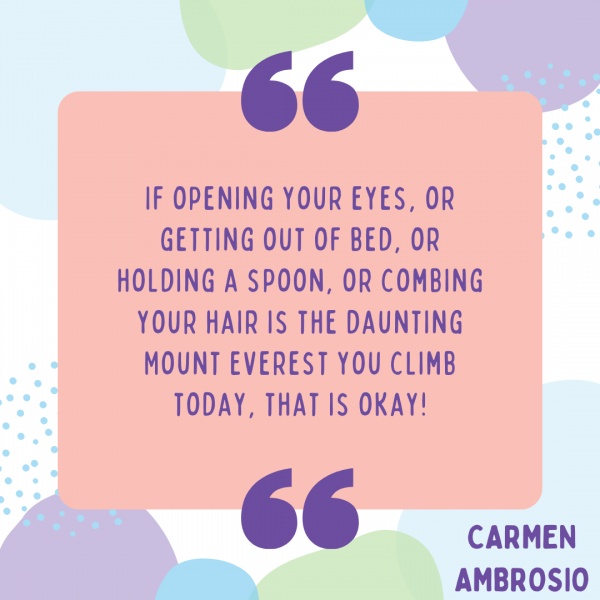
* This post is written by one of our volunteer content creators. *
Last month, Lauren posted a blog about July being ‘Disability Pride Month’ and the challenges surrounding the concept - especially when your disability impacts every part of your life, including your future plans. As I read Lauren’s blog, I was lying in bed, unable to do much more than half watching the television and occasionally scrolling through my phone. This is my reality whenever I get too hot as I have Postural Tachycardia Syndrome (PoTS), meaning my autonomic system doesn’t function properly and consequently cannot regulate my bodies temperature, which is particularly problematic on hot days, so I end up lying down in front of a fan all afternoon.
As I was reading Lauren’s blog, I was reminded of a picture taken in 2016 that recently popped up on my Facebook memories. I was teaching full-time and standing at my first national conference, speaking about my greatest passion - how teachers’ fighting for a better work-life balance, shouldn’t lead to them being challenged regarding their commitment to their pupils. I was teaching children with severe/complex learning disabilities, a job in which I truly loved; and through my union involvement, I was speaking up for both my pupils’ rights and my fellow teachers. I knew I was making a difference. I looked like a confident, capable young woman as I addressed the conference to propose an amendment to a motion. It was a moment where I was genuinely proud of my achievements!

What this photo doesn’t show is how my Autism triggered a huge amount of anxiety before standing up to speak, my speech had already been rewritten three times, and my hands were shaking as I stood at the podium. What also didn’t show was that I was already living with chronic fatigue. At this time my working day ran from 7:30 am until 6:45 pm, when I would return home, eat something, and go to bed; then my weekends mainly consisted of schoolwork, rest, and church on a Sunday morning. I didn’t have the mental or physical energy for anything else. Looking back now, it is obvious how chronic fatigue was already the driving factor in my life, as I wasn’t living, I was purely surviving. I gave all my energy to the children I cared so much about, leaving nothing for myself.
Seeing this photo brought up a mixture of emotions; I felt the pain of having lost a career that I loved. The pain of not being able to spend my weekdays in the company of some truly awesome young people. I felt the frustration of no longer being able to work, causing me to reflect on a future altered by chronic illness. Most importantly though, I felt hope because I have since found new ways to stand up for what I believe in and to contribute to the world around me. As much as I miss teaching, I am now able to look back and see just how limited my life was during the few years I was able to teach. Every scrap of energy went into my work and the levels of exhaustion I was facing weren’t sustainable in the long term.

My life looks very different now. I have to carefully plan my days to conserve my limited amount of energy. I must consider how overdoing things one day may impact the next and that I can’t always go through with plans, as my energy levels and ability to concentrate are not predictable. However, since walking out of my classroom a little over 3 years ago with no idea that I wouldn’t return, I’ve begun to find new ways of using my skills and experiences to help others. I have developed new perspectives, found space for hobbies, and acquired a renewed appreciation for what is important in life.
Objectively, people may look at my life and see it as being ‘worse’ than it was before, that my quality of life now is somehow lesser than it was when I spoke at that conference 4 years ago. But I’ve come to realise that in so many ways my life is richer. I’ve become part of communities filled with people living with similar conditions online, who I can engage with on a personal level; along with using Facebook to share my views on disability, chronic illness and the politics surrounding these topics. Something I never contemplated enjoying, as I always considered myself as a scientist or mathematician in the past, but now I’ve discovered the benefit and joy of expressing my opinions and passions through writing.
Writing over time, even if only for a few minutes, meant I could be successful without pushing my body beyond its limits. I can now work around my limitations, whether that involves writing nothing or writing a whole post in the middle of the night! I’m finding new activities that give me a sense of purpose, as well as hobbies that are sustainable long-term. This balance has become so valuable that I wouldn’t want to go back. I still live with chronic pain and fatigue, I still battle with the frustrations of relying on a wheelchair outside the house, and I still face the endless challenges relating to the management of my ever-changing disability. But despite these struggles' life is perfect and my mental health has never been better!


So, for anyone at the start of their journey who may be feeling like their life has been swept away - be kind to yourself. Over time you will begin to make practical changes that better support your health needs, but it’s equally important to take time to acknowledge the mental challenges associated your new life, especially as your priorities change and you begin to consider a potentially different future. It’s been three years and five months since I left my classroom, and I am still learning how to achieve the best quality of life that I can. I’ve drawn upon the support of family and friends, as well as professional support from a psychologist - something you should never be ashamed of doing. Over time I’ve acknowledged my new ‘normal’ and recognised how I can continue to move forward, even with the uncertainty that my illness brings.

Hi, I'm Lauren and I have been living with a collection of disabilities for the past 8 years. I initially had a passion for teaching children with special needs, but my health prevented me from pursuring my dream career. Despite this, I now love nothing more than sharing my experiences to help other people living with disabilities.
Hi, I’m Lori and was diagnosed with Ehlers Danlos Syndrome and a family of co-morbid conditions which has made life highly complex. However I constantly aim to make life as ‘normal’ and fulfilling as possible - and through this, I discovered the benefits of writing about my journey.
 GET IN TOUCH
GET IN TOUCH


